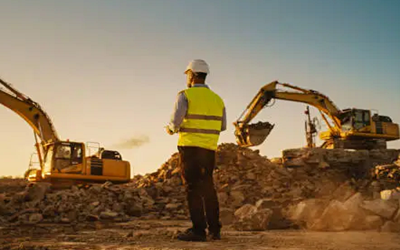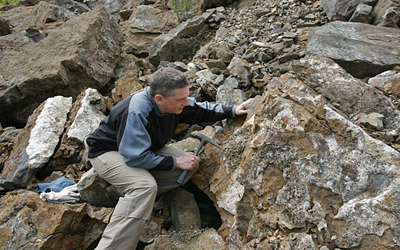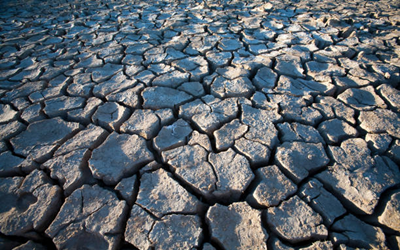GEOSCIENCES AT CURTIS ENGINEERING ACADEMY
Geosciences, also known as Earth Sciences, encompass the study of the Earth, its composition, structure, processes, and the physical phenomena that shape our planet. This field involves the investigation of the Earth’s atmosphere, hydrosphere, biosphere, and geosphere, extending from the Earth's core to the outer layers of its atmosphere. Geosciences play a critical role in understanding natural resources, environmental challenges, and the dynamic processes that influence the Earth’s surface and interior. Core Disciplines within Geosciences Geosciences are broad, encompassing several key disciplines: 1. Geology: o Focuses on the solid Earth, studying rocks, minerals, and the processes that form and alter them over time. It involves understanding Earth’s history through fossils and geological formations, investigating tectonic activity, and studying natural hazards like earthquakes and volcanoes. o Geology is central to exploring and managing natural resources such as minerals, oil, and gas. 2. Geophysics: o Uses physical principles to study the Earth’s interior structure and processes, including seismic activity, magnetic fields, and gravity. o Geophysics helps in understanding the Earth's subsurface, making it crucial for oil exploration, geothermal energy production, and earthquake research. 3. Hydrology: o Examines the distribution, movement, and quality of water on Earth, including groundwater, rivers, lakes, and oceans. o Hydrologists study the water cycle, water resources, and the impact of human activities on water systems, playing a vital role in water resource management and flood prevention. 4. Oceanography: o Investigates ocean systems, studying ocean currents, waves, marine life, and the chemical composition of seawater. o Oceanography is critical for understanding climate regulation, marine ecosystems, and the impact of human activities on oceans, including pollution and global warming. 5. Meteorology and Climatology: o Focus on the Earth’s atmosphere, studying weather patterns, climate change, and atmospheric processes. o Meteorologists forecast weather conditions, while climatologists study long-term climate trends and their effects on the environment. 6. Environmental Geoscience: o Combines aspects of geology, biology, chemistry, and physics to understand the interactions between humans and the natural environment. o It addresses issues like pollution, waste management, natural resource conservation, and the impacts of climate change on ecosystems. 7. Soil Science: o Studies soil as a natural resource, focusing on soil formation, classification, mapping, and its physical, chemical, and biological properties. o Soil science is essential for agriculture, land management, and understanding the role of soils in supporting ecosystems. Applications of Geosciences Geosciences have a wide range of applications that impact various aspects of human life, industry, and the environment: • Resource Exploration and Management: Geoscientists are integral to the discovery and sustainable management of natural resources, such as fossil fuels, minerals, and groundwater, which are essential for energy production, construction, and other industrial activities. • Environmental Protection and Climate Change: Geoscientists study the impact of climate change, pollution, and other environmental challenges. Their research supports efforts to mitigate the effects of global warming, manage natural disasters, and protect ecosystems. • Natural Disaster Prediction and Management: By understanding geological processes, geoscientists contribute to the prediction and mitigation of natural disasters like earthquakes, tsunamis, landslides, and volcanic eruptions. Their work is vital for disaster preparedness and risk reduction strategies. • Engineering and Construction: Geoscientists provide crucial data for the design and construction of infrastructure, such as roads, dams, tunnels, and buildings, ensuring that structures are built on stable ground and considering geological risks. • Renewable Energy: Geosciences play a role in the exploration and development of renewable energy sources like geothermal energy, hydropower, and the study of wind and solar energy patterns. Research Methods in Geosciences Geosciences use a variety of methods to study Earth’s systems: • Field Studies: Geoscientists often conduct fieldwork to collect samples, map geological formations, and observe natural processes in their environments. • Laboratory Analysis: Rocks, minerals, water, and soil samples are analyzed in laboratories to determine their chemical composition, age, and physical properties. • Remote Sensing and GIS: Technologies like satellite imagery, drones, and Geographic Information Systems (GIS) are used for mapping, analyzing spatial data, and monitoring changes in the Earth’s surface. • Geophysical Surveys: Techniques such as seismic surveys, magnetic and gravity surveys, and ground-penetrating radar help explore subsurface structures without the need for direct excavation. Importance of Geosciences Geosciences are fundamental to understanding our planet's past, present, and future. They provide insights into how the Earth has evolved over billions of years, how natural systems function, and how human activities influence the environment. This knowledge is crucial for managing natural resources sustainably, reducing the impacts of environmental hazards, and adapting to a changing climate. Geosciences play a critical role in shaping policies for sustainable development, disaster resilience, and the responsible use of Earth’s resources, ultimately contributing to the well-being of society and the planet
English
Last updated
Sat, 21-Dec-2024









